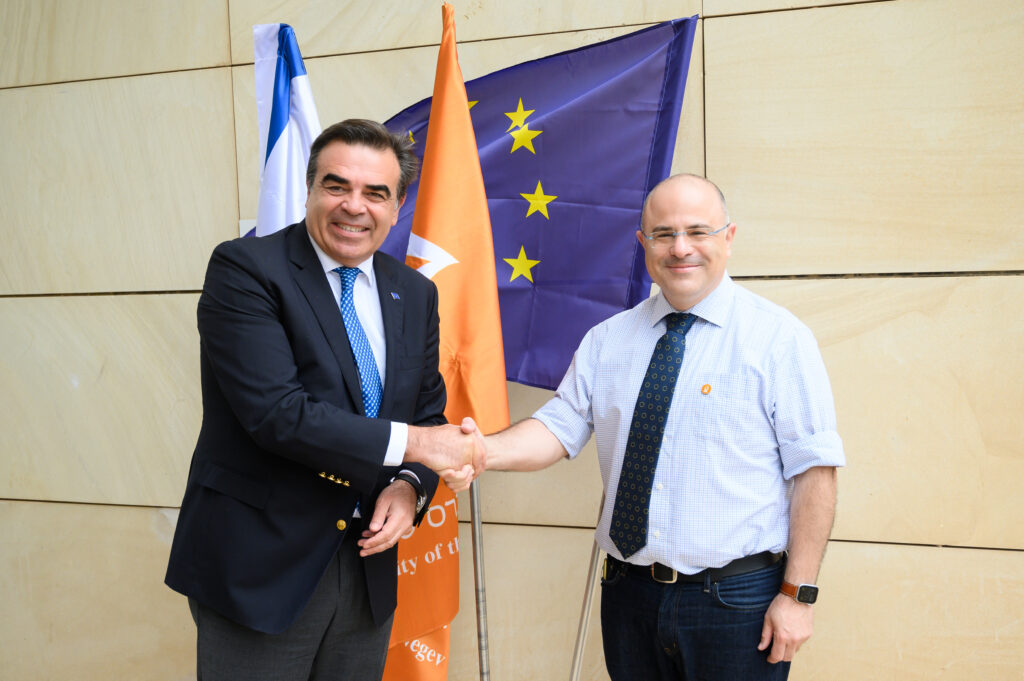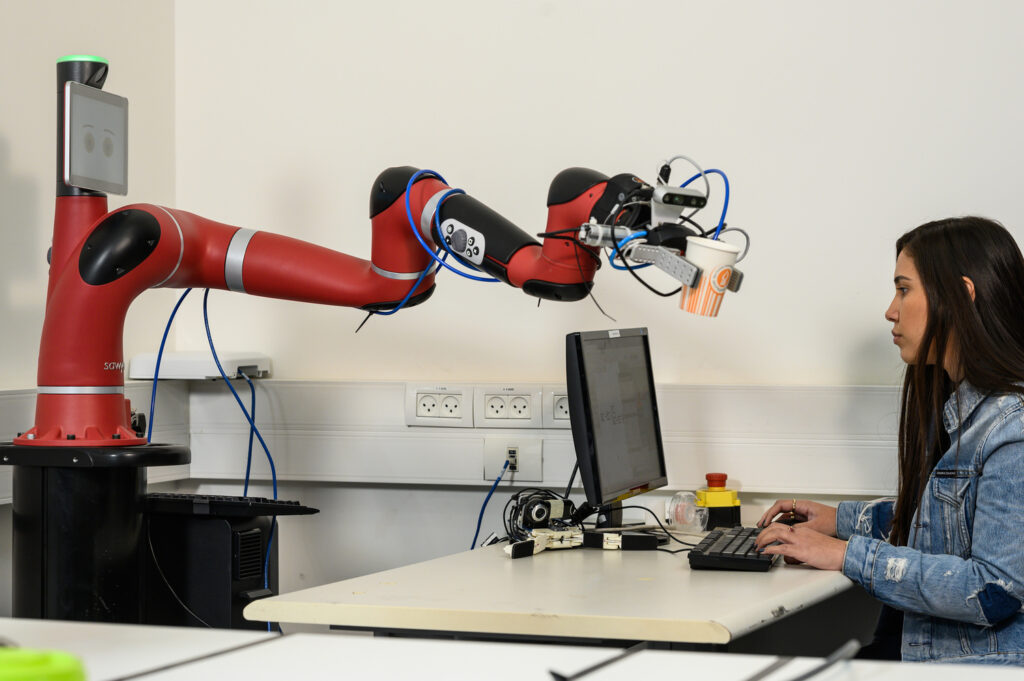
Higher Education Down South (BGU’s Eilat Campus)
Higher Education Down South (BGU’s Eilat Campus)
August 5, 2008
Business & Management, Negev Development & Community Programs
Since its earliest days,
At least one person is working overtime to make that dream a reality. Dr.
The road trips aren’t especially difficult, Krakover says. It was living in hotels that made it tough. “That’s over now,” he smiles. “I went to the administration and said, ‘I’m not going to divorce my wife. I really need an apartment.’ Just this week, I picked up the keys to a flat they rented for me. That’ll make a huge difference.”
It also marked the beginning of a trend. Beginning in October 2007, several BGU professors will be living full-time in Eilat. “BGU-Eilat will offer tenure-track positions for professors,” Krakover says. “To qualify, the professors must live in Eilat, not commute. Our goal is to establish an institution that will benefit not just the students or the university, but also the city of
Located on the southeast side of Eilat, the
Last academic year, the Eilat student body grew from 370 to 490 students. “This year, another 200 students completed their matriculation, so next year we’ll have 700. The following year we’ll need a thousand students, to keep the momentum. We’ll be opening new programs all along,” the dean forecasts.
The potential for growth is enhanced by the institution’s status as a BGU extension, Krakover says. “We’re the first ‘brand name’ academic institution in the city, and that helps. But primarily, we intend the growth to come from our offering solid education in an area already popular as a recreational paradise.”
For now, most of the students hail from the center of the country. “For obvious reasons, Eilat is enormously attractive to young people,” Krakover points out. “Many have vacationed here and have good memories. Just look at the beach – who wouldn’t want to study here? Another local advantage is the opportunity for part-time employment in the tourism industry. Even now, we have hotels and other tourist businesses coming to the campus, trying to hire college students. It’s perfect for students because most of these jobs can fit around their class schedules.”
Eilat’s remoteness offers another less obvious advantage – for students, if not for parents. “Believe it or not, some students want to put a little distance between themselves and their parents,” Krakover says with a laugh. “If they live in Tel Aviv and study at the
One of Krakover’s priorities is to promote the campus among students who come from much further away – from overseas. “While overseas programs are popular in all Israeli universities, our Eilat campus has a distinct advantage,” Krakover says, noting that overseas programs usually invite foreign students for short-term specialized study for a month, a semester or a year. “Eilat has a very international flavor and is already popular with tourists from Europe, the Scandinavian countries,
Archeology is one of the subjects most amenable for a condensed overseas program. “The whole Eilat region is rich in archeological findings. The opportunity to come for a period of combined study and excursions should be very attractive to students around the world,” notes Krakover. “Geology, Marine Biology and our Hotel and Tourism departments are other options that will naturally appeal to students from abroad. After that, my next objective is to work with Eilat’s closest neighbors, Jordan and
It took finesse to decide which fields of study would be made available on the Eilat campus. “We couldn’t cannibalize our main campus,” Krakover says. “We didn’t want to open departments in Eilat that would split the student body in
Earlier this week, an
Krakover pays special tribute to the Mayor of Eilat, Meir Yitzhak Halevy. “He’s a creative guy who’s been working non-stop to develop the full potential of Eilat. He understood that a city of 50,000 can’t thrive on only one industry, but needs a broader economic base. Before, Eilat was trying to run on just tourism, but when Halevy came to office, he began aggressively courting educational and academic institutions. He realizes all the benefits academic institutions will bring to his city.”
Eilat’s demographics demonstrate the need for more local educational opportunities. According to the Central Bureau of Statistics, about 17% of Israelis aged 22 to 28 are enrolled in higher education. In
Nurses have also benefited. “In years past, nurses attended a nurse’s college and didn’t receive an academic degree,” notes Krakover. “Now regulations have changed and a degree is required, which meant that many nurses needed to upgrade their education. We’ve created a one-year program in Eilat that does just that.”
For all students, one of the biggest advantages is that they will be able to attend BGU’s Eilat campus for three years without paying tuition, so long as they agree to perform community service. “The tuition-free opportunity is possible because of the generosity of a group of donors,” Krakover says. “Student tuition will be paid to BGU through a joint fund created by the Sacta-Rashi Foundation, the Jewish Federation of Toronto, the Eilat Fund and the ‘Perach’ student-schoolchild mentoring program. Obviously the students benefit, but so does the local community since the students will be performing community service.”
For Krakover, the appointment as dean of the Eilat campus was the perfect career opportunity. Born in
Today, the Krakover family includes four sons, three of whom are married, while the youngest is serving in the IDF. Krakover was a father of BGU’s Department of Geography and Environmental Development, having served as department chairman and director of its urban studies program. Building a
With the new campus, everyone wins. “It gives students the chance to pursue a solid education in an incredibly beautiful area. The city gets all the benefits of the high energy that the students and institution bring. For BGU, it’s a great chance to expand its outreach and services.”
“In



